
The Birth of Machiavelli, May 3, 1469
“Do not be deceived: God is not mocked, for whatever one sows, that will he also reap.” —Galatians 6:7
 ome historical figures are known by one name, and everyone understands to whom you refer. In our times such a person is usually an entertainer and the first name is sufficient: Elvis, Cher, Prince, Lassie (did she even have a last name?). Seriously important historical characters known to history by a single appellation were men like Churchill, Newton, Lenin, Stalin, Mao, Napoleon, Michaelangelo, Caesar (though Julius is helpful since everyone after him wanted the title). Along with the last three mentioned above, Italy also produced one of the best known singularly known individuals of all time, Machiavelli. ome historical figures are known by one name, and everyone understands to whom you refer. In our times such a person is usually an entertainer and the first name is sufficient: Elvis, Cher, Prince, Lassie (did she even have a last name?). Seriously important historical characters known to history by a single appellation were men like Churchill, Newton, Lenin, Stalin, Mao, Napoleon, Michaelangelo, Caesar (though Julius is helpful since everyone after him wanted the title). Along with the last three mentioned above, Italy also produced one of the best known singularly known individuals of all time, Machiavelli.
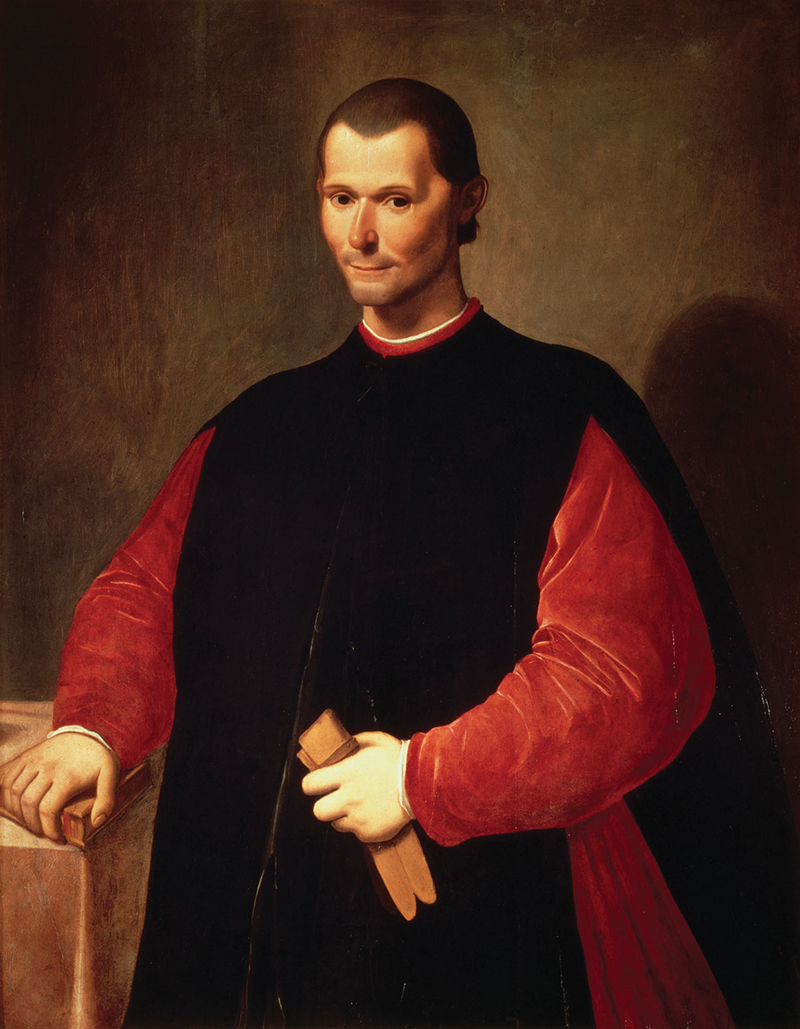
Niccoló Machiavelli (1469-1527)
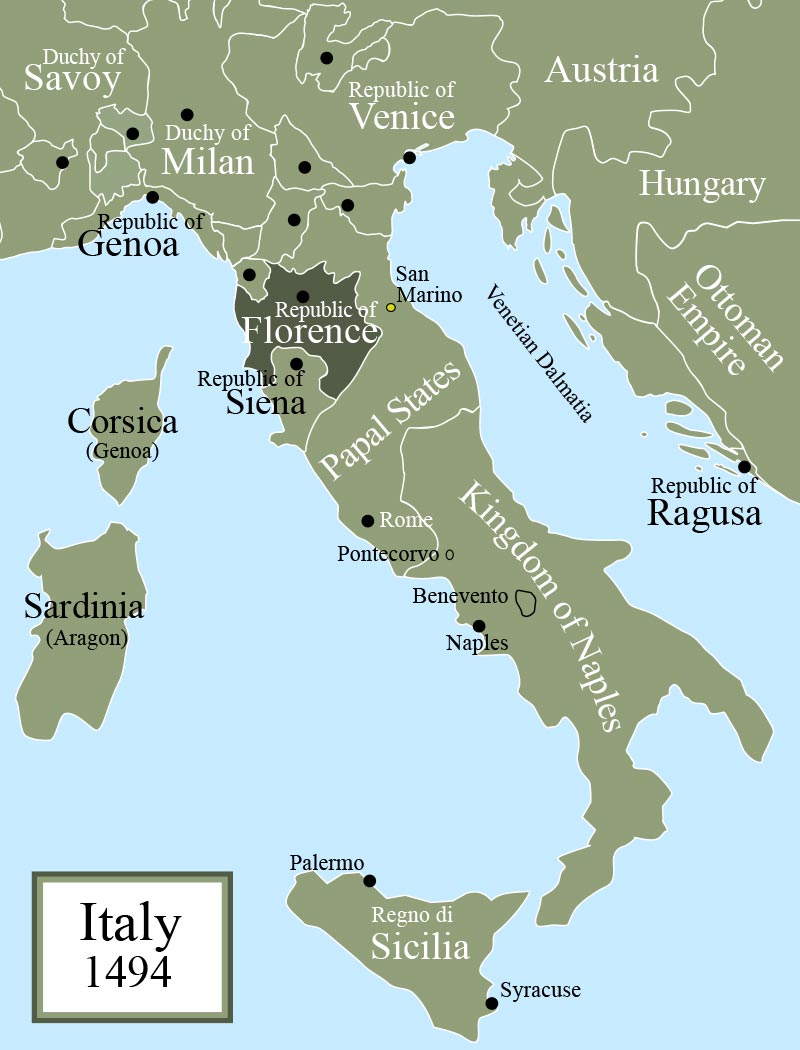
The republic of Florence shown in dark green in relation to modern-day Italy
|
Niccoló di Bernardo dei Machiavelli (1469-1527) was born in the Republic of Florence to a well-placed and well known Florentine family. Machiavelli exemplifies in a number of ways the “Renaissance man” idealized by future historians of his era. After receiving a classical education minus the learning of Greek, and as the oldest son of a lawyer whose family background included men who served in the civil government of Florence for generations, Niccoló served variously in the office of chancellery, as a secretary and foreign diplomat representing the Republic in several different European countries.
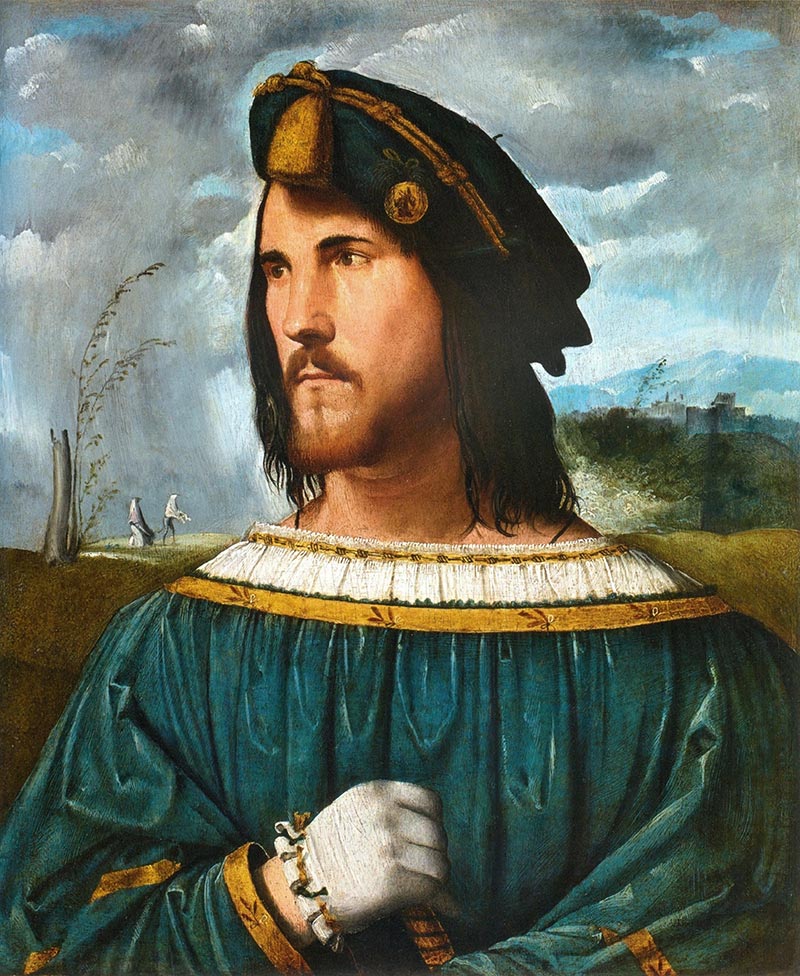
Cesare Borgia (1475-1507), whose fight for power greatly inspired Machiavelli’s thoughts and writings, was the illegitimate son of Pope Alexander VI and member of the Spanish-Aragonese House of Borgia
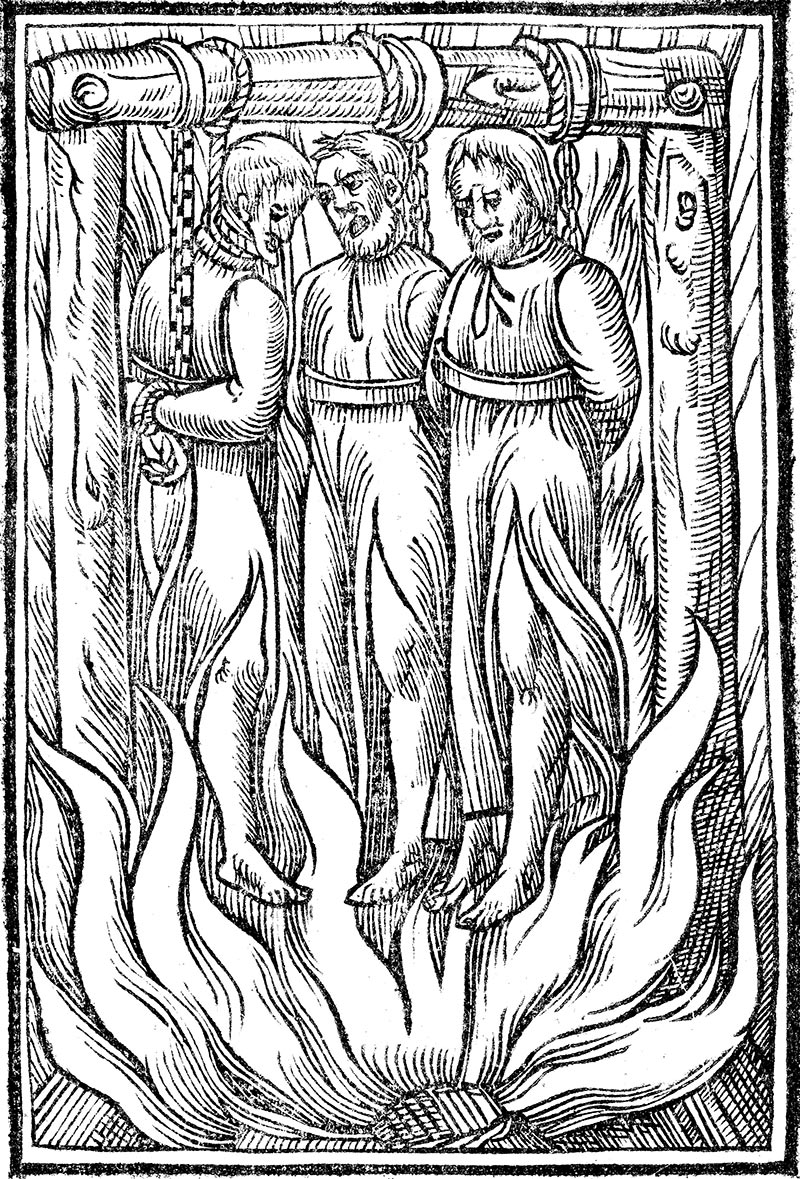
The death of Friar Girolamo Savonarola (1452-1498)
|
He may have witnessed the burning to death of the proto-protestant Dominican friar Savonarola and his friends, in the town square, for defying papal authority and advocating certain reforms of the Church. Machiavelli observed the machinations of the Medici family who had ruled over Florence for sixty years, and the ruthlessness of Cesare Borgia, the son of Pope Alexander VI, as the papacy expanded its power and acquisition of land. While the educational and social ferment of Renaissance Italy put Florence in the midst of the turmoil engendered by the wash of new ideas and questioning of traditional ones, Machiavelli recorded his thoughts and published books, plays, comedies, and essays on popular culture, military alliances, and politics. Some historians consider him the father of political philosophy and political science.
Machiavelli’s most influential contribution to the Renaissance and political philosophy emerged in his classic work Il Principe (The Prince), written in Italian rather than Latin, before 1513, although it was not officially published until 1532, five years after his death. He dedicated the book to Lorenzo de’ Medici, who ruled Florence for three years and whose daughter Catherine became the Queen of France. Lorenzo led the papal armies to seize and hold Florence, which ended almost as quickly as it had commenced. Lorenzo had died at 26, “worn out by disease and excesses.”
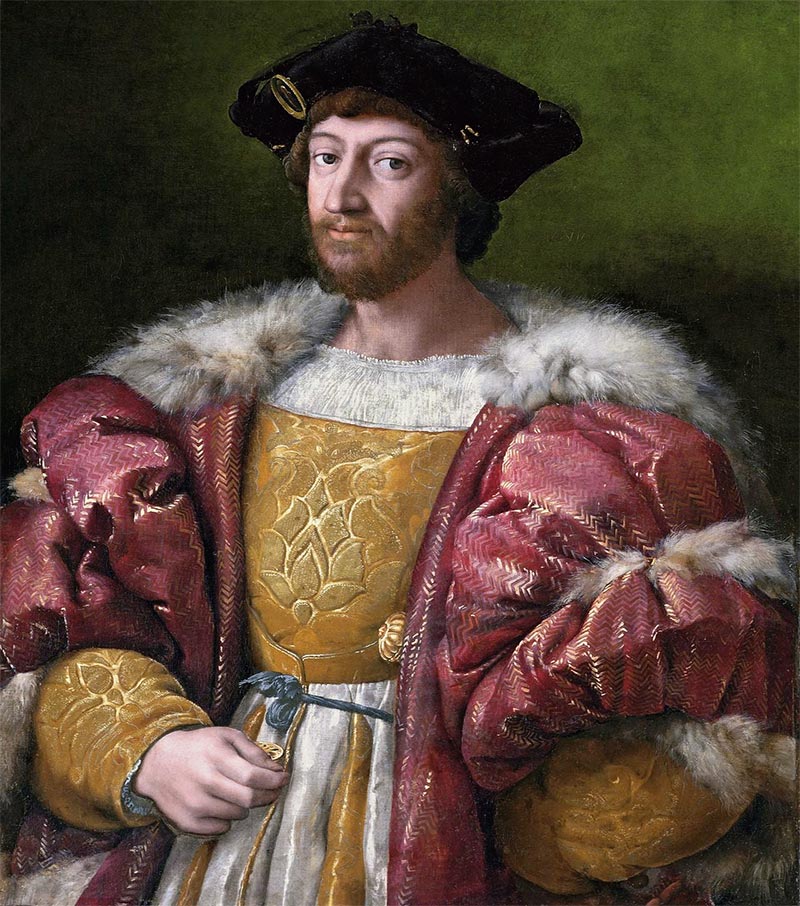
Lorenzo de’ Medici (1492-1519), Ruler of Florence, to whom Machiavelli dedicated The Prince
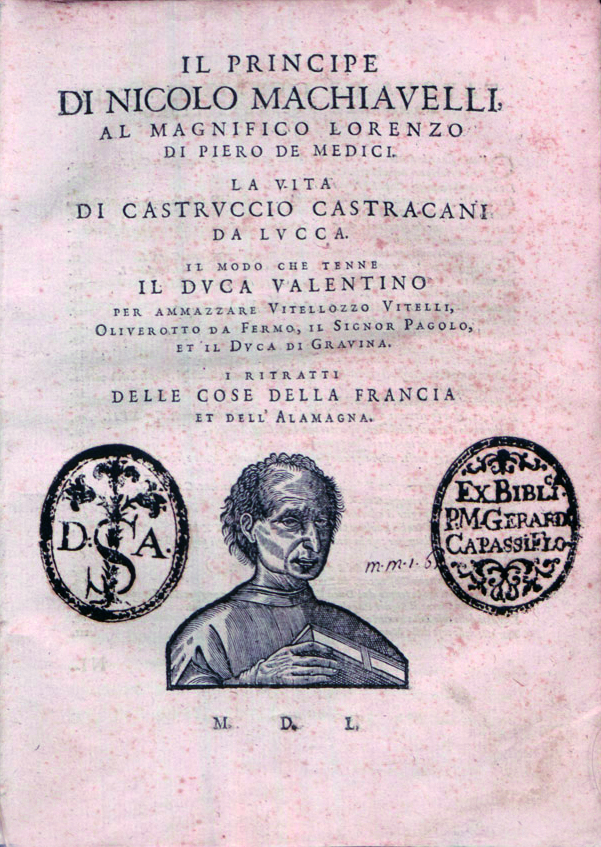
Cover page of the 1550 edition of Machiavelli’ss Il Principe (The Prince)
|
In The Prince, Machiavelli argued that princes could use any means to fulfill their destiny, in direct contradiction to the teachings of the Church. He used the word ‘state’ to refer to supreme political power in a republic, monarchy or lesser “princedom.” He recommended that a prince conquering a free state should destroy them as Rome destroyed Carthage; crushing all domestic opponents earns respect for the erstwhile prince. Once in power, the prince should use whatever ruthlessness necessary to hold that power and use every means at his disposal to eliminate competition. He recommends calculating the best moment to kill them all so he will not have to worry in the future and the people will forget about his less virtuous actions in the beginning.
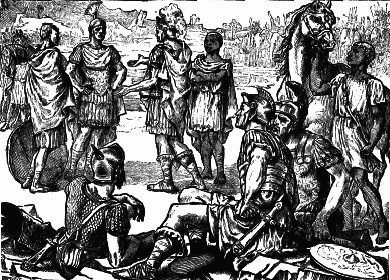
Meeting of Hannibal and Scipio Africanus at the Battle of Zama. To Machiavelli, Hannibal was the prime example of ruling in ruthlessness and therefore commanding respect versus Scipio Africanus who was a gentle ruler, which Machiavelli viewed as a weakness.
|
Machiavelli’s treatise on political power—how to achieve it and how to hold on to it—went well outside traditional works on political mores and power. He strongly recommended winning over the people since they are more numerous than the nobility and their approval most advantageous. Sound laws and strong military forces are both necessary for the prince to retain his position and protect his turf. Too much mercy shown to defeated enemies will work against the prince in the long run. Cruelty should be a standard tool of the prince’s power toolbox. Fear of the prince should keep potential rivals in line. Machiavelli used Hannibal, Scipio Africanus, and Cesare Borgia as examples whose actions proved his point. Cunning princes are the ones who keep their power, although “he should appear to be compassionate, faithful to his word, guileless, and devout. And indeed he should be so. But his disposition should be such that, if he needs to be the opposite, he knows how.”
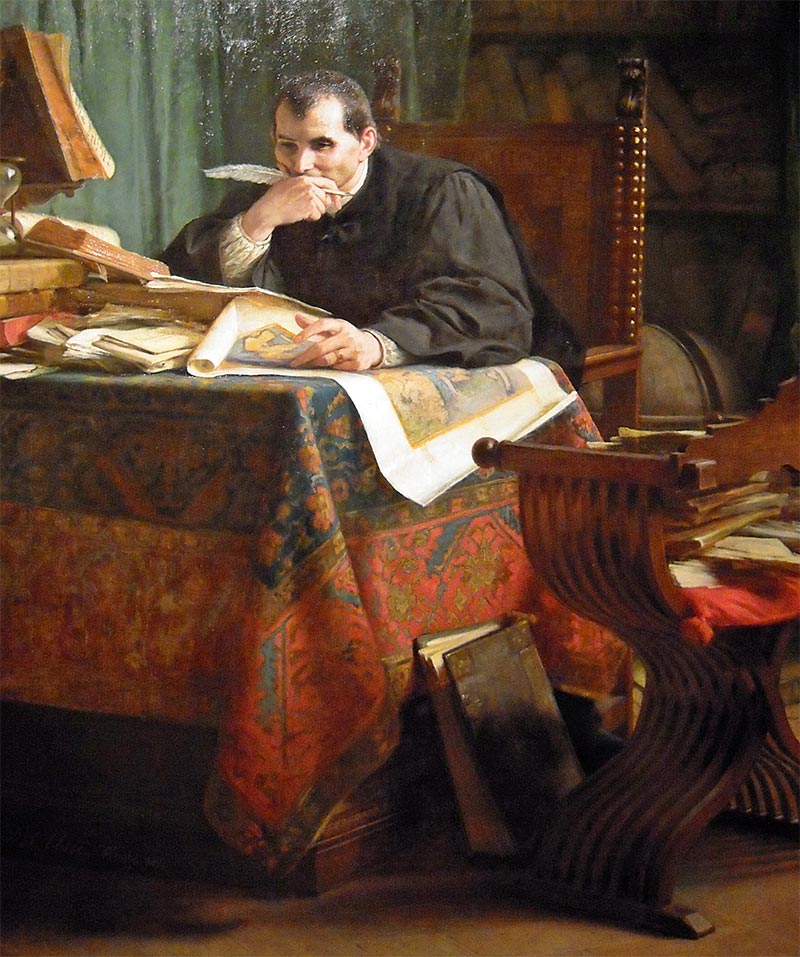
Machiavelli in his study
The immorality and pragmatism of Machiavelli’s treatise shocked his contemporaries and is still hotly debated. He loosened the bonds of the Roman Catholic Church to the extent that “princes” took his advice, and his name has entered western vocabulary as an adjective. He influenced greatly a number of philosophers through the centuries, his book has gone through more than fifteen editions, and used to be read as a classic work on political philosophy in universities around the world. Protestant reformers wrote against The Prince and its implications for civil government. In America, business and government leaders have sometimes proven to be absolutely Machiavellian.
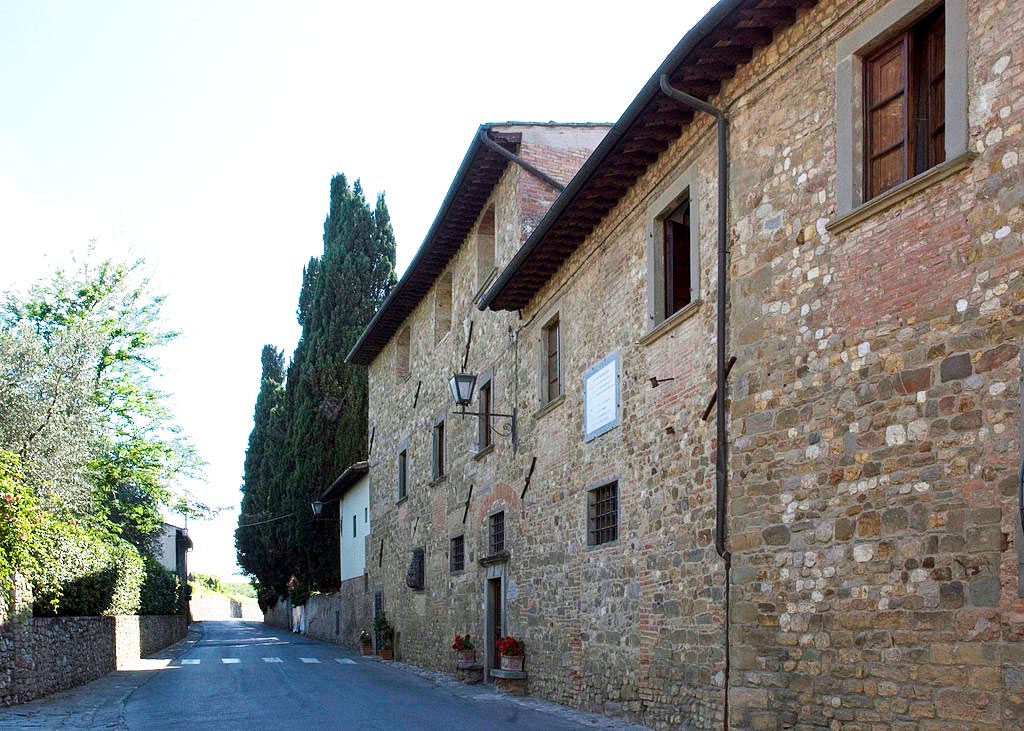
L’Albergaccio, or Casa di Machiavelli, was the home of Niccoló Machiavelli during the time that he wrote The Prince. It is still owned by the Machiavelli family to this day.

Image Credits:
1 Machiavelli (Wikipedia.org)
2 1494 Map of Italy (Wikipedia.org)
3 Cesare Borgia (Wikipedia.org)
4 The Execution of Savonarola (Wikipedia.org)
5 Lorenzo de’ Medici (Wikipedia.org)
6 Cover page of The Prince (Wikipedia.org)
7 Hannibal and Scipio (Wikipedia.org)
8 Machiavelli in his study (Wikipedia.org)
9 L’Albergaccio (Wikipedia.org)
|







